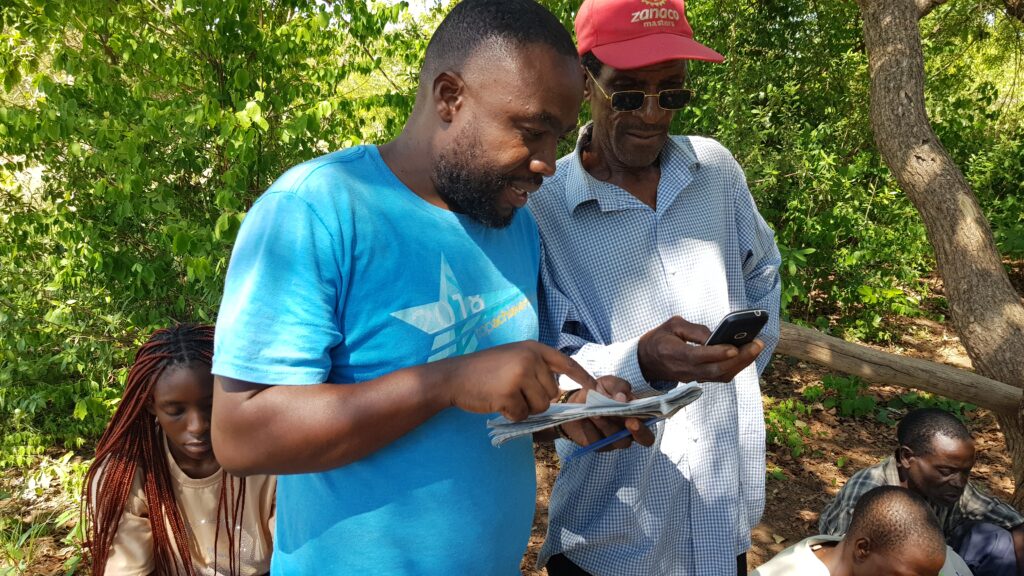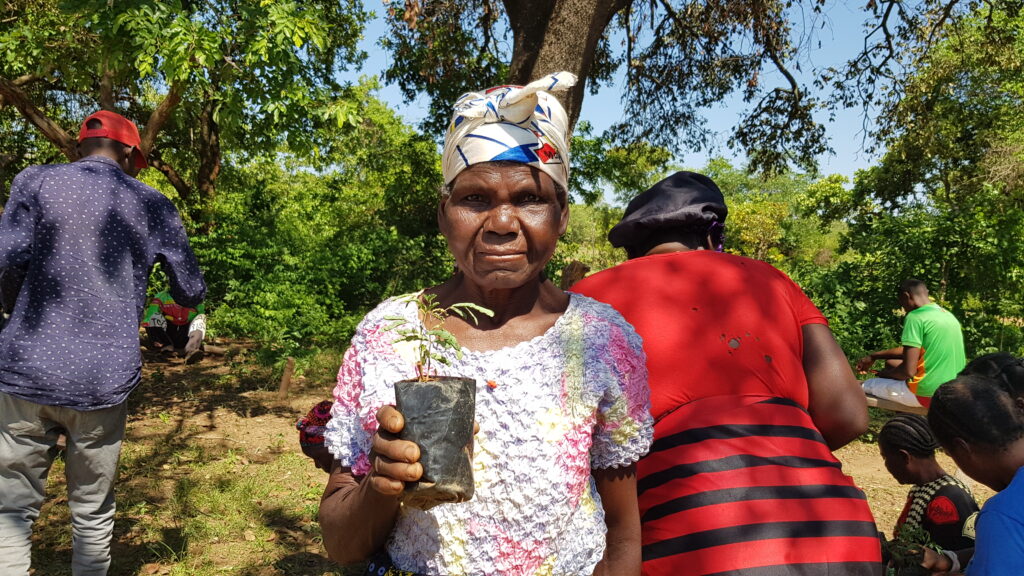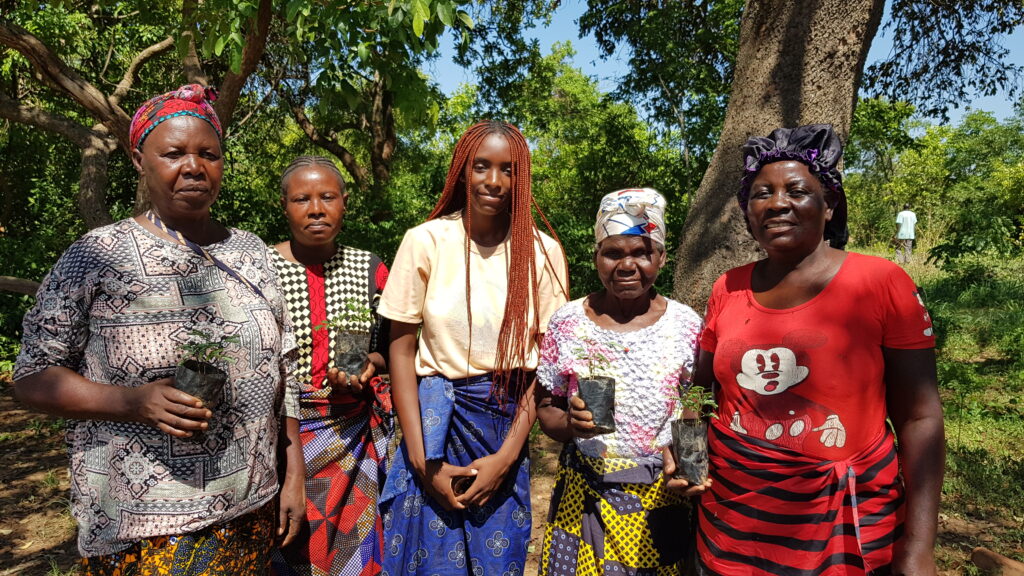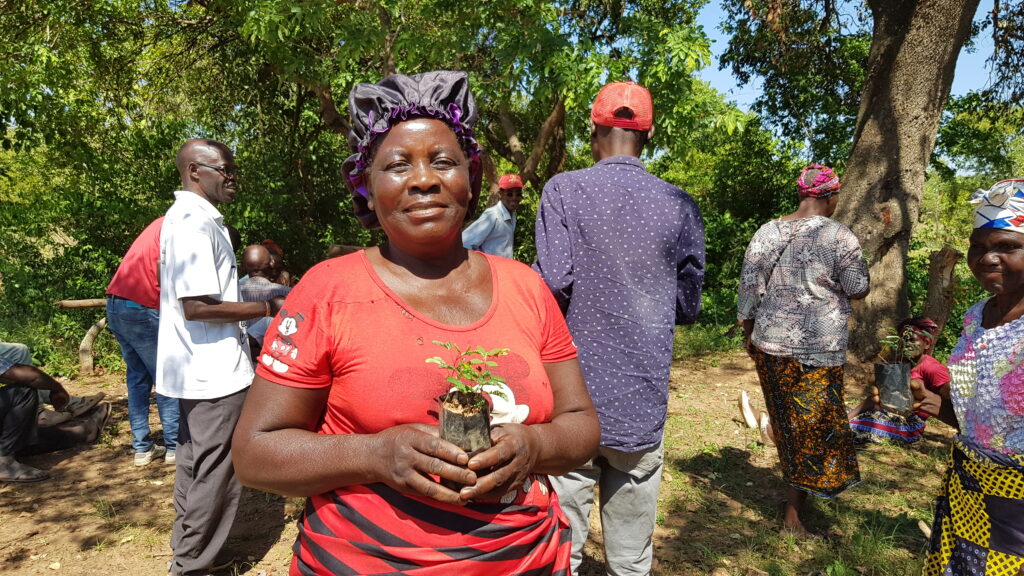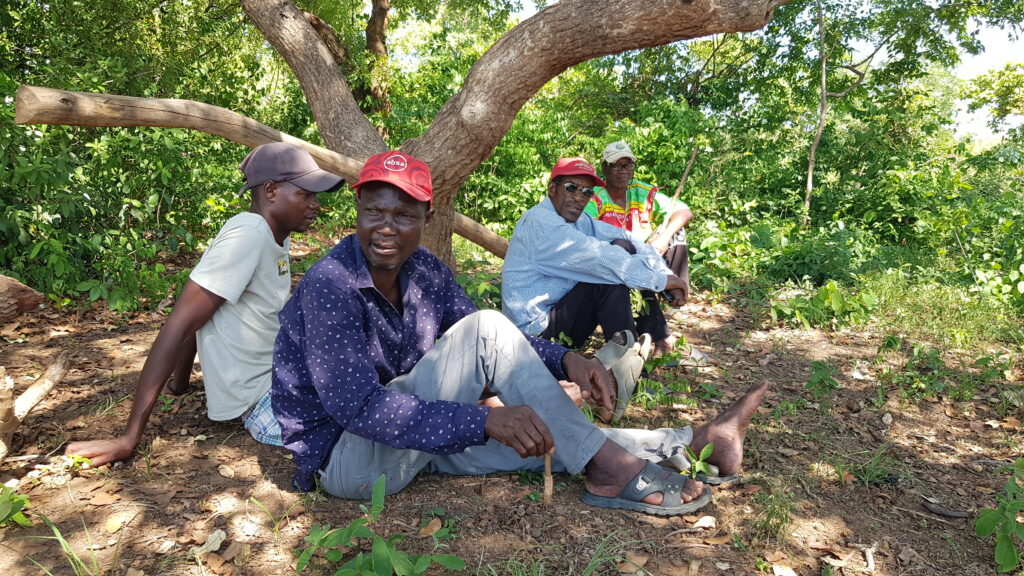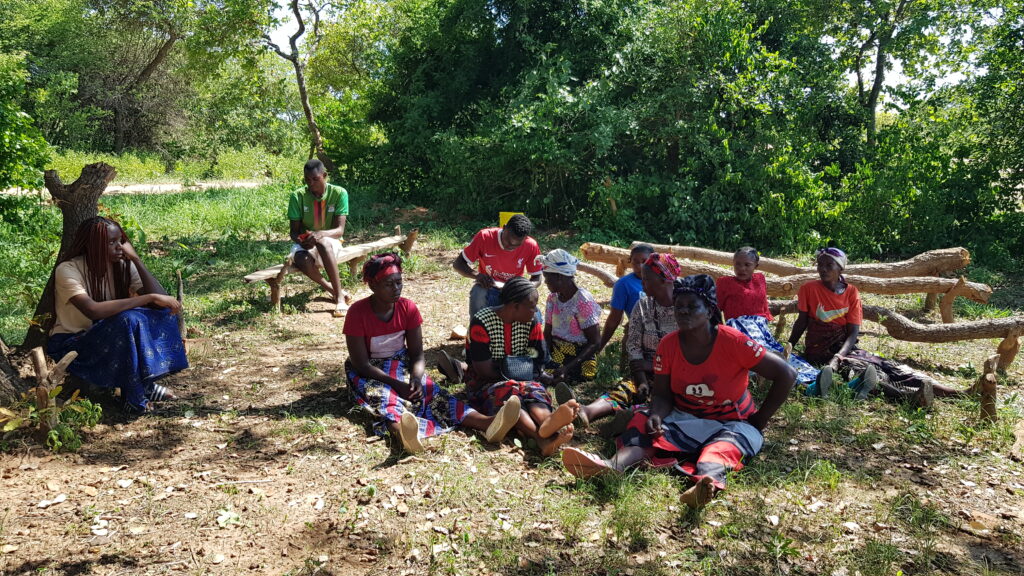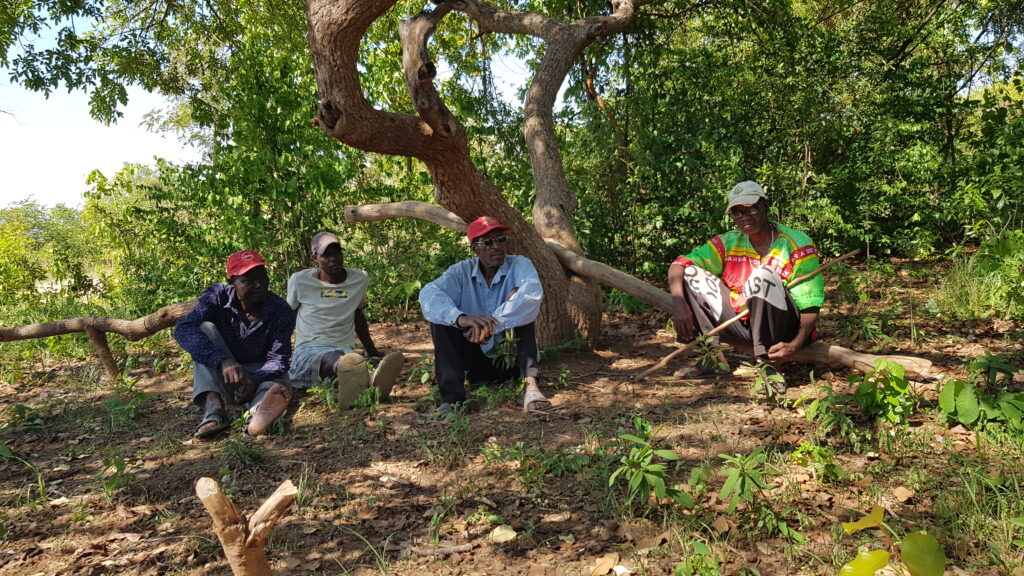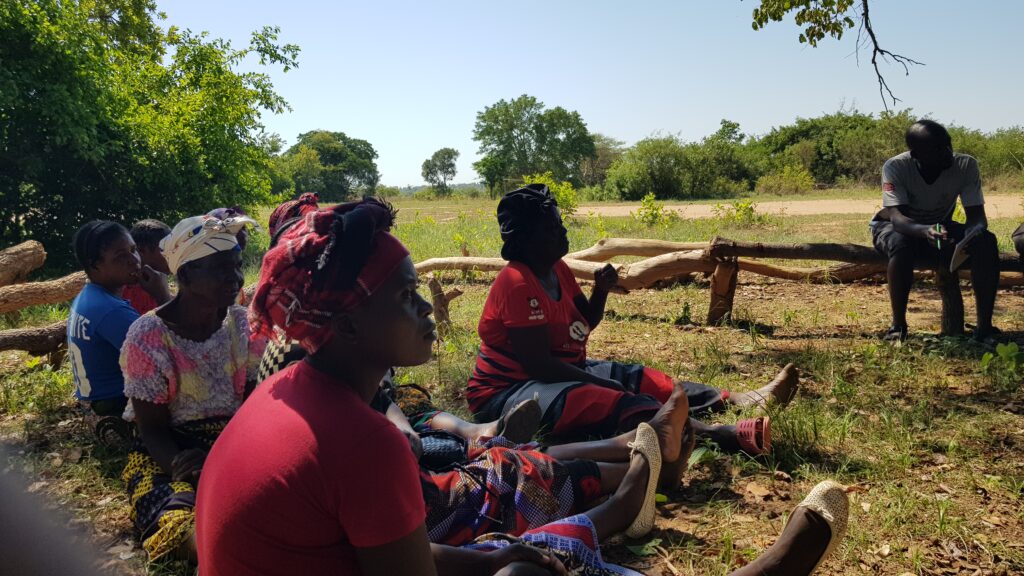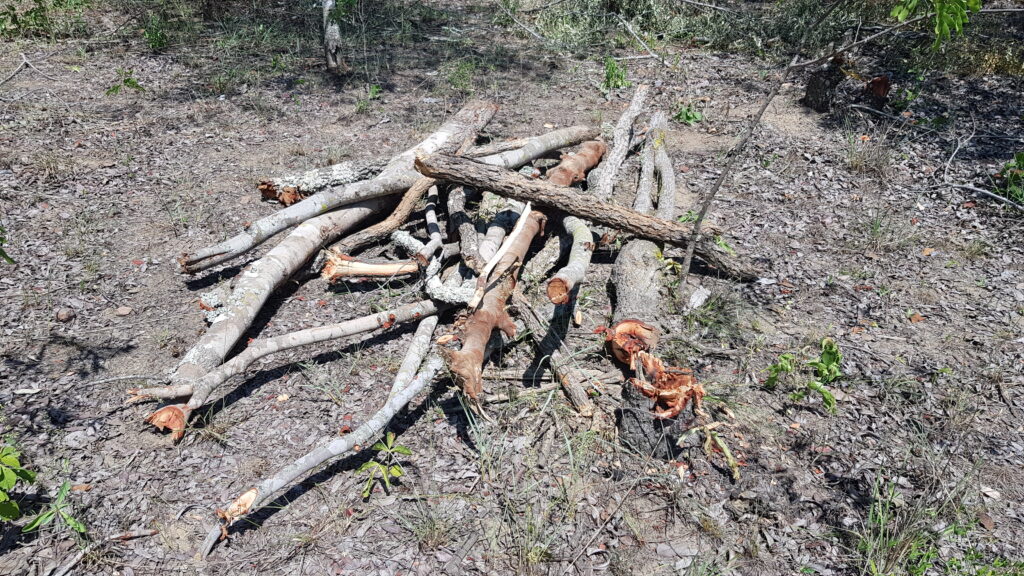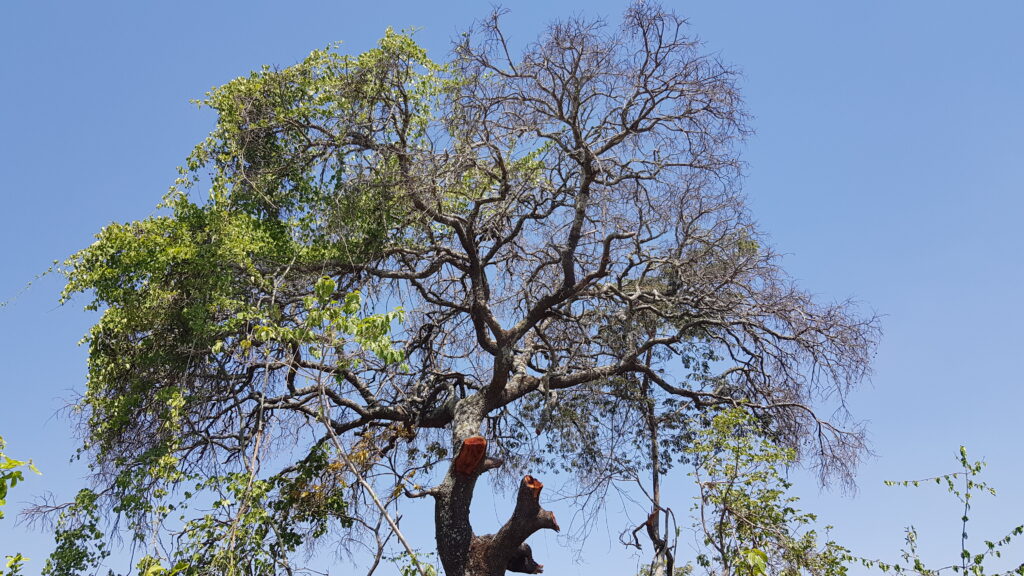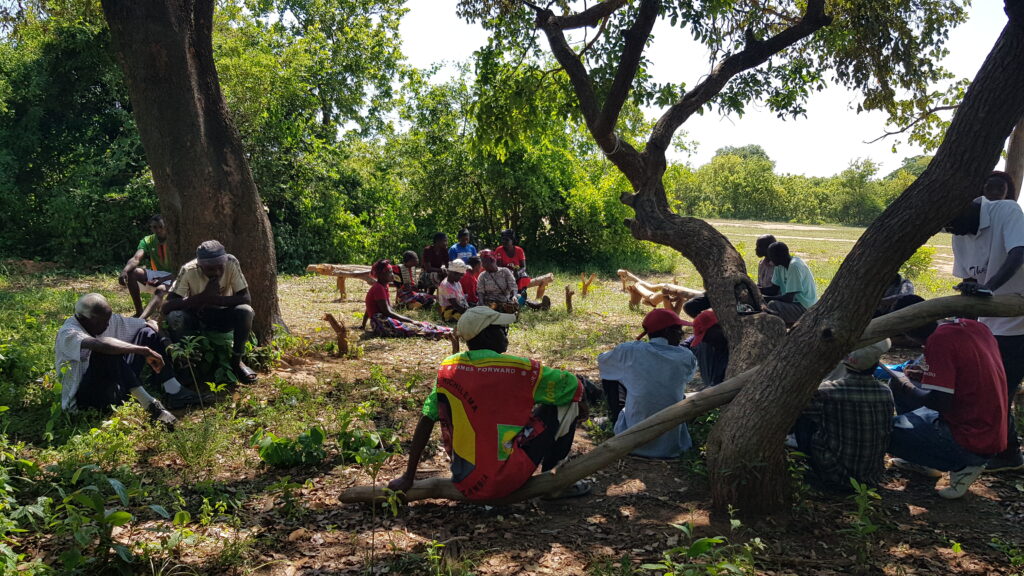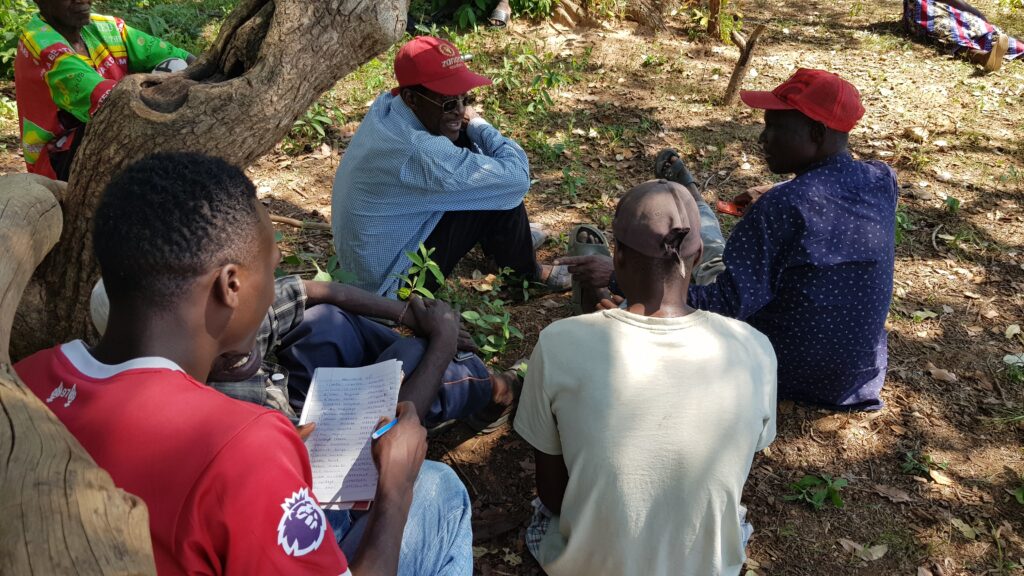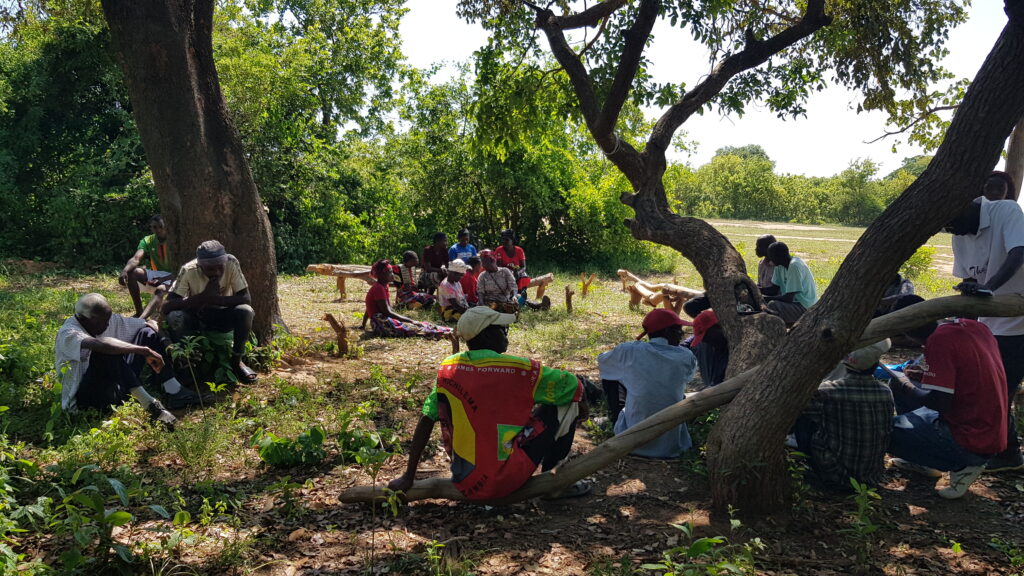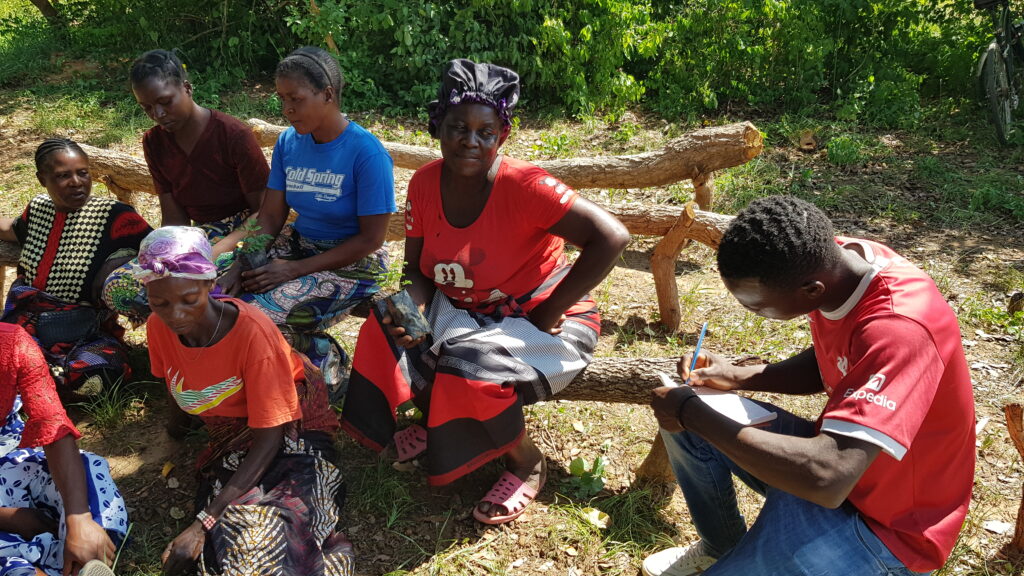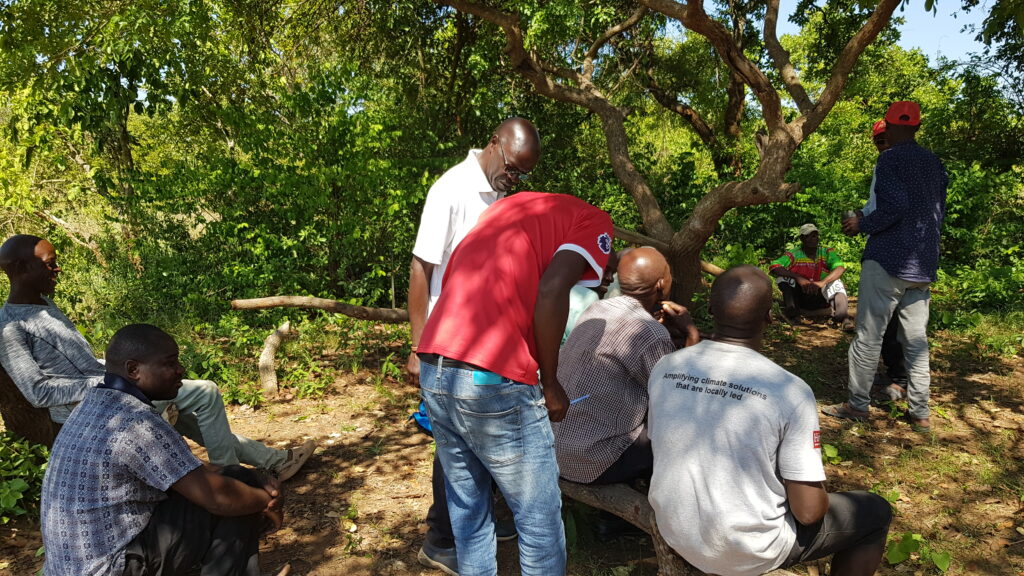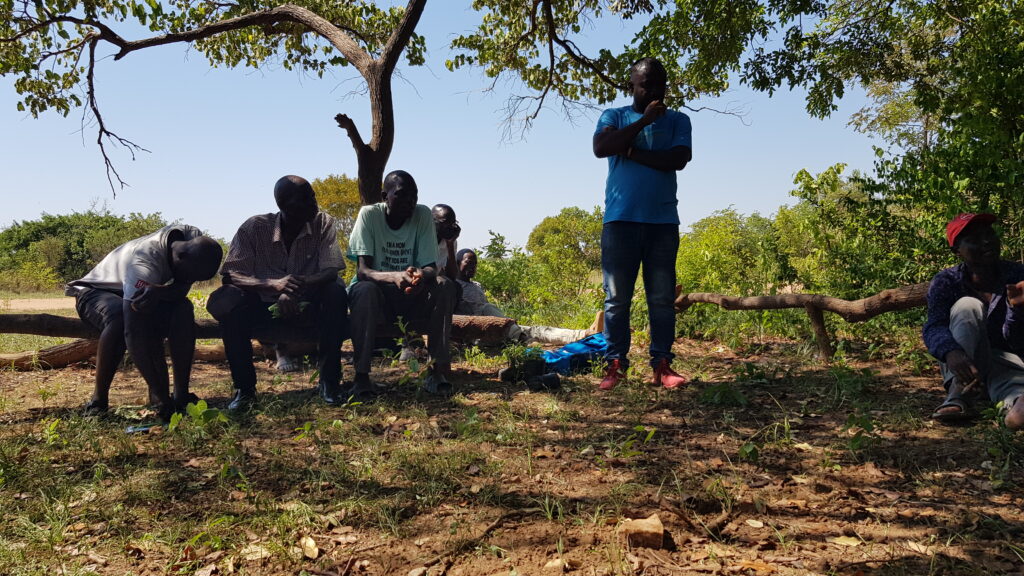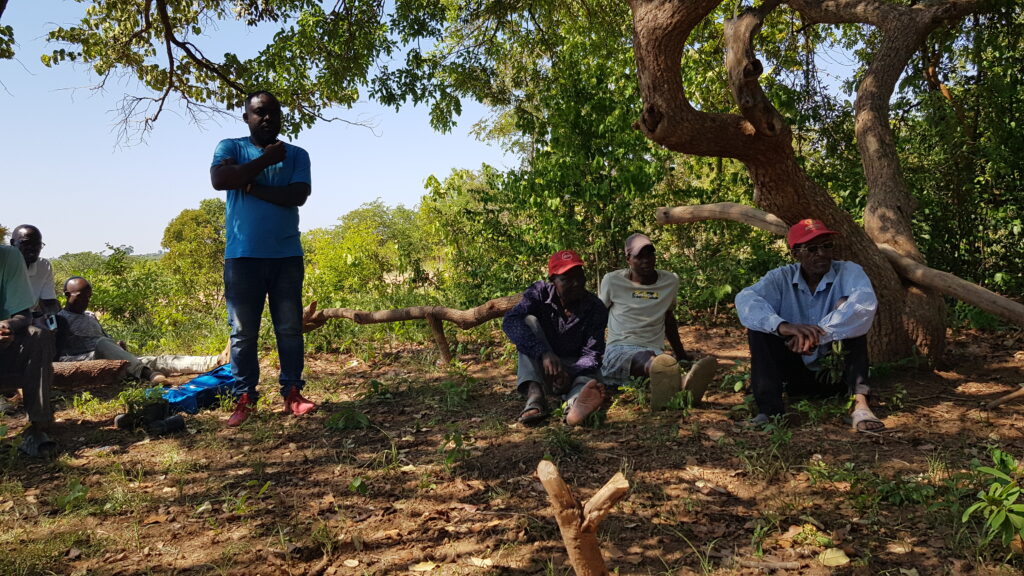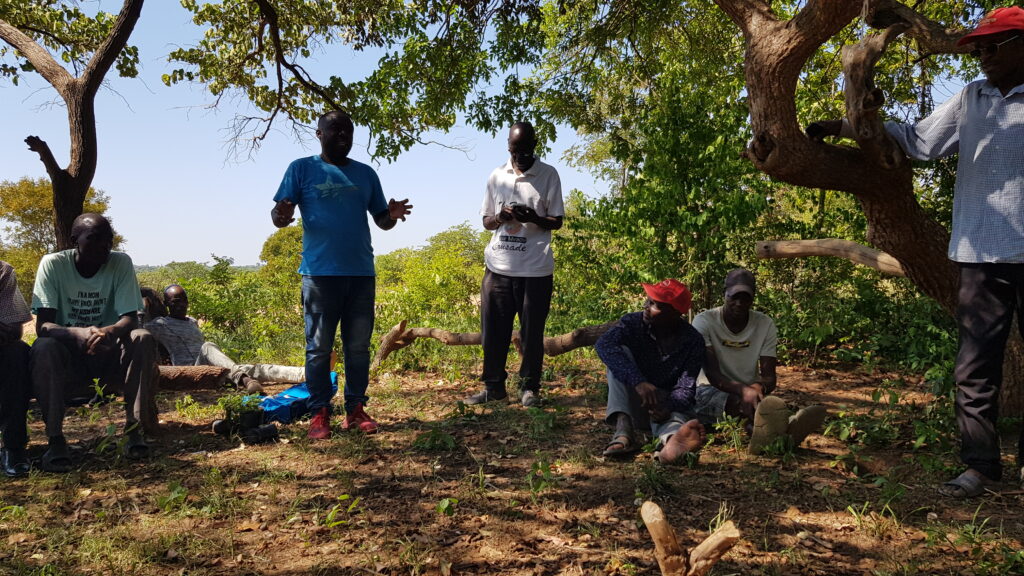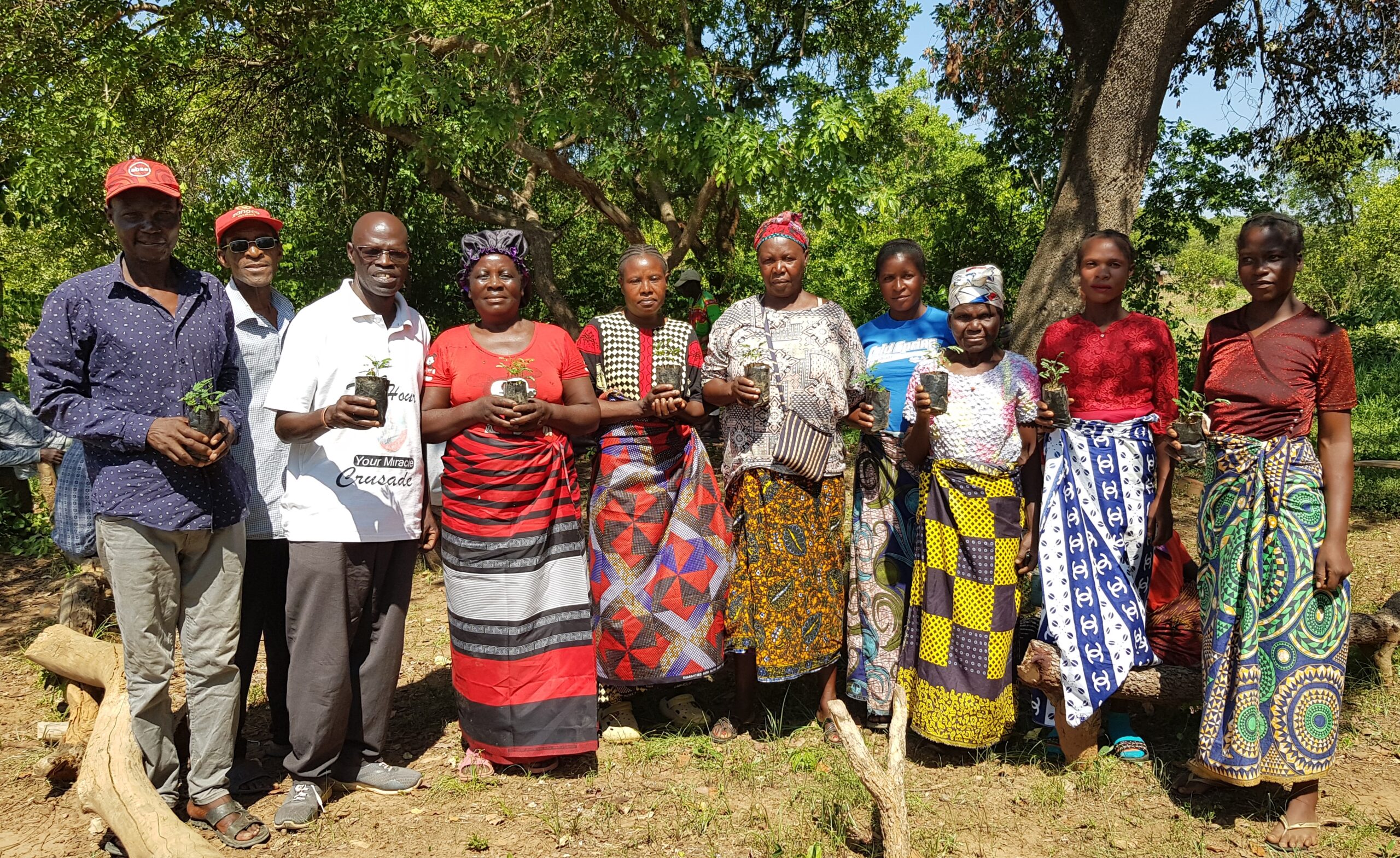We had a productive meeting in Chisengu village, Chongwe, with 30 farmers where we discussed climate change, and how best we can grow crops in times of drought.
We walked for an hour over 10 kilometres to Chisengu where we found the villagers waiting for us under a tree they use for village meetings.
Chisengu is a special place. I felt a deep connection to the place the moment we arrived. Unlike many other places we have had awareness meetings, Chisengu still has lots of trees.
Not far from the meeting place, which is next to a bare football field, we could hear children talking and laughing as they drew water from the only borehole that has not gone dry since last year’s drought. It is the perfect place to start a tree nursery.
When we arrived, other villagers started showing up after the deputy headman called them on his phone. The deputy headman informed us that he made a mistake when sending out the invites for the meeting. He only told the men to come but we were eager to talk to the women about climate change and sustainable agriculture.
After all, climate change affects all genders. In fact it affects women even more as they are already marginalized in society.
Lucky enough, the first woman who showed up went back to call other women to attend the meeting. 13 women in total showed up.
When the meeting started, we told everyome that we were here to learn from each other. We understand that embracing agroforestry might mean changing the way they have lived so many years and that is not something they can do in one or two years.
We told them that our job was to share information hopefully it was helpful to them. We told them that agroforestry was not new in Zambia. It has worked elsewhere to improve crop yields.
We highlighted the benefits of planting Leucaena, Gliricidia, and musangu trees with maize, emphasizing their role as nitrogen-fixing trees that improve soil health and provide fodder for goats, cows, and sheep.
The women asked alot of questions after the meeting. Where do the seeds for Luecaena come from? How deep should we plant the seedlings? Won’t the trees be competing with the maize for sunlight and water? How tall do the trees grow? Are you selling these seedlings?
We answered all these questions in great detail. We informed them that the farmers we are teaching agroforestry get the seedlings for free. Anyone else who is not from the three villages of Chikwela, Kapuka and Chisengu has to buy the seedlings. The women clapped at this information and privilege of getting free seedlings.
We introduced Green Gold Social’s reforestation initiative where we aim to replace the indigenous trees that have been cut down for charcoal.
The villagers also voiced concerns about water scarcity, with over five boreholes dried up. They also noted declining maize yields and rising fertilizer prices.
At the meeting’s conclusion, farmers recorded their interest in planting 850 trees.
In January, when rains stabilize, we will deliver these trees and demonstrate planting techniques on a volunteer’s plot.
